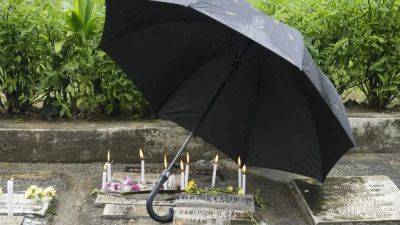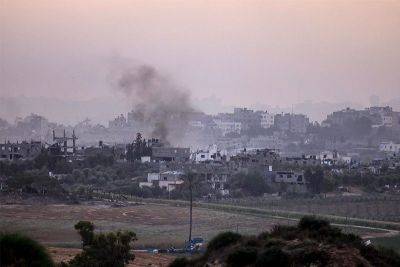Ukrainian soldiers learn first aid near the front line
For soldiers fighting on Ukraine’s front lines, a split second first aid decision can be the difference between life or death.
Whether learning to apply a tourniquet, wrap a bandage or carry a wounded person, regular basic medical training is an essential part of their skill set in the field.
“It’s crucial training, because every soldier needs to know how to save his own life and that of others nearby,” said Victor Pylypenko, a 36-year-old medic in the 72nd Ukrainian brigade.
According to analysts, at least tens of thousands of soldiers have been wounded and killed on both sides since Russia’s invasion on Ukraine on February 24, 2022, although neither Kyiv nor Moscow have disclosed their losses.
Near the town of Kurakhove, situated 15 kilometres (nine miles) from the eastern front, some 15 soldiers from Pylypenko’s unit gathered for a course delivered by intensive care nurse Mossy, an Australian volunteer.
Starting inside, and then moving to work in the undergrowth, the soldiers practiced applying tourniquets to an arm or leg to stop massive external bleeding, which can lead to death in a matter of minutes.
Every soldier is equipped with an individual first aid kit (IFAK), which includes one or two tourniquet straps.
Measuring roughly 70 centimetres (28 inches) and fitted with a twisting handle, the straps grip the limb above the wound and thus stop the bleeding.
“The most common wounds in the field are (shrapnel) wounds in the limbs,” Pylypenko said.
The chest and back are also often hit, because “the bullet-proof vest doesn’t fully protect you,” he added.
“There are frequent cases of massive haemorrhaging, and tourniquets have really saved hundreds, if not thousands, of lives,” said Pylypenko, adding that it was “essential” that soldiers knew how to use them correctly.
Both the way they are applied and the quality of the tourniquet determines their effectiveness.
“The government provides us with IFAKs, but they are not always good quality,” said Pylypenko, lamenting “fake tourniquets that are deadly on the battlefield.”
Ukrainian NGOs and combat unit nurses this summer criticised the lack of standardisation and poor quality of first aid equipment provided by







